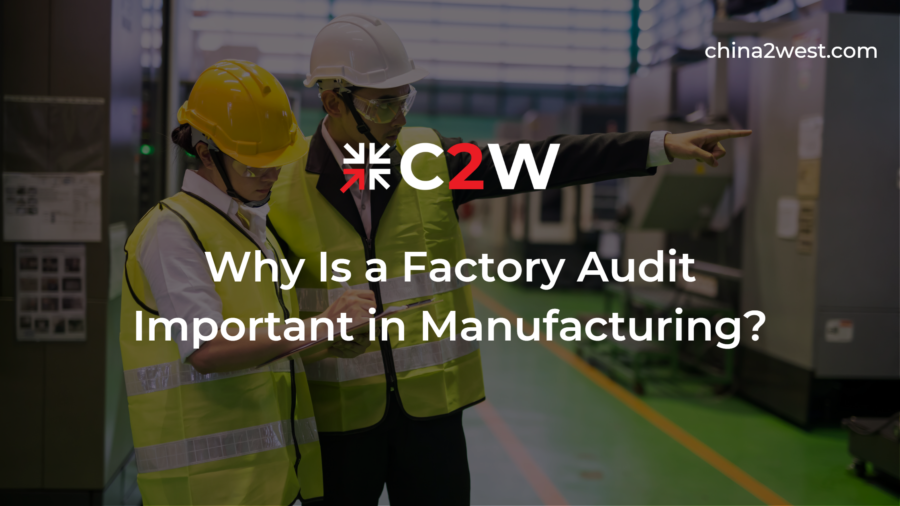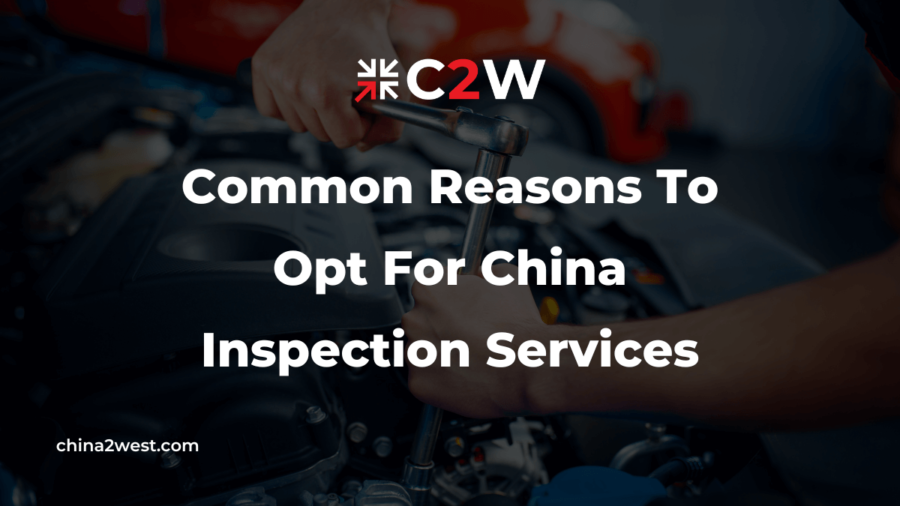Did you know that Apple outsources 95% of its product production to factories in China? And for good reason. These highly experienced manufacturers produce quality products at reasonable costs.
Companies need to ensure a quality product. And to do this, they must conduct factor audits. A factory audit helps you examine how a supplier works, what they’re good at, and whether they can meet your needs.
It’s essential to do this check to make sure you pick the right supplier. You can also use it to keep tabs on suppliers you already work with.
Read on to learn more about the advantages of regularly auditing your manufacturing factory partners.
What Is a Factory Audit?
Factory audits are an essential part of outsourcing. They cover a range of areas, including ethics, environment, efficiency, and more.
A Basic Definition
A factory audit is a way to check if a supplier meets the rules and standards you set. It looks at the supplier’s factory to ensure they can provide good products and services.
This check is done by a quality manager or professional auditor who looks at how:
- The supplier makes things
- Organized they are
- They control quality
A factory audit is like a custom-made test to see if the supplier can do what you need. It helps you ensure they can create things correctly and improve over time. You can do this check once a year to make sure everything’s still okay.
What Does a Factory Audit Assess?
Factory audits are conducted with a clear purpose in mind. Most factory audits aim to assess one of three factors:
- Regulations
- QC (quality control)
- Productivity
Regulatory compliance and certifications are essential for a vendor. An auditor will review these to ensure the entity meets the necessary standards.
An auditor will assess a vendor’s Quality Management System (QMS). The QMS monitors and manages the vendor’s quality procedures. This includes data management, analysis, and customer satisfaction.
Factory audits also assess a vendor’s productivity to ensure the timely delivery of products. This includes a review of production processes and equipment.
Types of Factory Audits
There are five primary types of factory audits that a company can carry out. Which of the five you need to conduct depends on your needs.
Ethical audits confirm the vendor has social accountability and follows government requirements. They also ensure they run a safe workplace.
Manufacturing audits help evaluate the vendor’s ability to produce quality products. They confirm the products meet client specifications and mitigate risks like production issues.
Environmental audits ensure compliance with environmental regulations. This includes local and international laws and environmental standards.
Structural audits evaluate the safety and compliance systems of the vendor’s premises. They ensure the vendor complies with fire safety measures, reducing the chance of supply-chain problems.
C-TPAT audits are unique to US customers. This special audit checks whether a vendor has terrorism and border security measures in place.
Outside the Primary Advantages of a Factory Audit
The decision to audit manufacturing partners is always a smart move. But why? Here, we explore some of the lesser-known benefits of regular audits.
Continuous Improvement
Getting better at all aspects of product development is a crucial part of running a successful business.
When a company works with suppliers to conduct factory audits, it can identify areas for improvement in the supplier’s production process. This process leads to ongoing quality improvements and increased efficiency over time.
Collaborating with suppliers to perform factory audits helps build stronger relationships. It fosters better communication between parties. And effective communication and collaboration are essential for successful supply chain management.
Supplier Evaluation
Conducting factory audits helps companies check a supplier’s ongoing capabilities. They can also assess their capacity to meet their requirements.
They use this information to make well-informed decisions. It informs future business partnerships and negotiations.
Additionally, factory audits help identify inefficiencies in the supplier’s production process. This includes product development, such as in the case of ODM.
This may lead to cost savings and increased profitability for both parties.
Supply Chain Transparency
Supply chain transparency is crucial for all companies that outsource. But it’s vital for those who want to build trust with their customers and stakeholders.
Audits help companies can gain a better understanding of their suppliers’ operations. They can ensure they align with their company’s values and ethical standards. This reduces the risk of negative publicity or reputational damage caused by supply chain quality issues.
Supply chain transparency also allows companies to identify weaknesses. Once they’re aware of those issues, they can address them. This might include improving sustainability practices or reducing waste.
Brand Protection
Nothing matters more for most companies than the reputation of their brand.
One poor product review won’t hurt, but recalls or other systemic product quality issues have a lasting impact. After all, 85% of customers trust online brand reviews as much as friend referrals.
A factory audit safeguards a company’s brand reputation. It does so by ensuring its suppliers follow quality and safety standards.
This can prevent potential financial or legal risks. These usually arise from non-compliance or defective products.
In other words, audits help protect a company’s interests.
Sustainability
Factory audits play an essential role in promoting sustainability in the manufacturing sector.
Companies identify areas for improvement in their suppliers’ environmental and social practices. Audits encourage suppliers to adopt sustainable practices. And these practices align with their customer’s goals and values.
And this, in turn, creates a more sustainable supply chain.
Organize a Factory Audit Now
Don’t take risks with your brand—regularly audit your manufacturing factory partners.
Outsourcing production to factories is an intelligent business decision for many companies. But it’s essential to work a factory audit into your standard processes. This ensures the quality and safety of the products being produced.
China 2 West Services has decades of experience in Asia-based supply chain consulting. We have experience across various industries, including sporting goods, consumer electronics, and hospitality.
Are you considering outsourcing to China or anywhere within the Asia region? Then, reach out to our team today.




